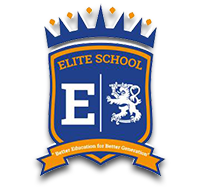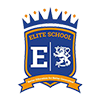Language and literature
I. Course description and aims
Language is fundamental to learning, thinking and communicating, as well as providing an intellectual framework to support conceptual development. It plays a central role in developing critical thinking, cultivating international-mindedness, exploring and sustaining personal development and cultural identity, and responsibly participating in local, national and global communities.
MYP language and literature courses equip students with linguistic, analytical and communicative skills that help to develop interdisciplinary understanding. Students develop skills in six domains—listening, speaking, reading, writing, viewing and presenting—both independently and with others.
MYP language and literature courses include a balanced study of genres and literary texts, including a world literature component. Students’ interactions with texts generate moral, social, economic, political, cultural and environmental insights. Through their studies, students learn how to form opinions, make decisions, and engage in ethical reasoning.
The aims of MYP language and literature are to encourage and enable students to:
- use language as a vehicle for thought, creativity, reflection, learning, self-expression, analysis and social interaction
- develop the skills involved in listening, speaking, reading, writing, viewing and presenting in a variety of contexts
- develop critical, creative and personal approaches to studying and analysing literary and non-literary texts
- engage with text from different historical periods and a variety of cultures
- explore and analyses aspects of personal, host and other cultures through literary and non-literary texts
- explore language through a variety of media and modes
- develop a lifelong interest in reading
- apply linguistic and literary concepts and skills in a variety of authentic contexts.
II. Curriculum overview
The MYP promotes sustained inquiry in language and literature by developing conceptual understanding in global contexts.
Key concepts such as communication, connections, creativity and perspective broadly frame the MYP curriculum.
Related concepts promote deeper learning grounded in specific disciplines. Examples of related concepts in MYP language and literature include genre, purpose, context and style.
Students explore key and related concepts through MYP global contexts.
- Identities and relationships
- Orientation in space and time
- Personal and cultural expression
- Scientific and technical innovation
- Globalization and sustainability
- Fairness and development
The MYP curriculum framework offers schools flexibility to determine engaging, relevant, challenging and significant content that meets local and national curriculum requirements. This inquiry-based curriculum explores factual, conceptual and debatable questions in the study of language and literature.
The MYP requires at least 50 hours of teaching time for each subject area in each year of the programme. For students participating in MYP eAssessment, the IB recommends 70 hours of guided learning each year in MYP years 4 and 5.
III. Assessment Criteria
Each language and literature objective corresponds to one of four equally weighted assessment criteria. Each criterion has eight possible achievement levels (1–8), divided into four bands with unique descriptors that teachers use to make judgments about students’ work.
Criterion A: Analysing
Students demonstrate an understanding of the creator’s choices, the relationship between the various components of a text and between texts, and make inferences about audience responses and creators’ purposes. Students use the text to support their own responses and refect on diferent perspectives and interpretations.
Criterion B: Organizing
Students understand and organize their ideas and opinions using a range of appropriate conventions for diferent forms and purposes of communication. Students recognize the importance of maintaining academic honesty, respecting intellectual property rights and referencing all sources accurately.
Criterion C: Producing text
Students produce written and spoken text, focusing on the creative process itself and on the understanding of the connection between the creator and his or her audience. Students make choices aimed at producing texts that afect both the creator and the audience.
Criterion D: Using language
Students develop, organize and express themselves and communicate thoughts, ideas and information. They use accurate and varied language that is appropriate to the context and intention.

